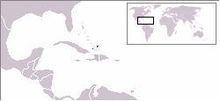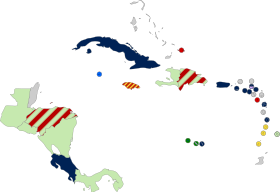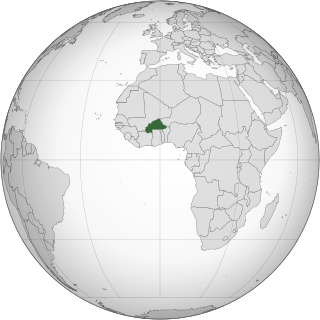
Lesbian, gay, bisexual, and transgender (LGBT) people in Burkina Faso face legal issues not experienced by non-LGBTQ citizens. Although same-sex sexual acts are legal for both men and women in Burkina Faso, there is no legal recognition of same-sex marriage or adoption rights.
Gay-friendly or LGBT-friendly places, policies, people, or institutions are those that are open and welcoming to gay or LGBTQ people. They typically aim to create an environment that is supportive, respectful, and non-judgmental towards the LGBT community. The term "gay-friendly" originated in the late 20th century in North America, as a byproduct of a gradual implementation of gay rights, greater acceptance of LGBT people in society, and the recognition of LGBT people as a distinct consumer group for businesses.
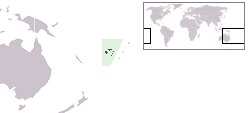
Lesbian, gay, bisexual, and transgender (LGBT) rights in Fiji have evolved rapidly over the years. In 1997, Fiji became the second country in the world after South Africa to explicitly protect against discrimination based on sexual orientation in its Constitution. In 2009, the Constitution was abolished. The new Constitution, promulgated in September 2013, bans discrimination based on sexual orientation and gender identity or expression. However, same-sex marriage remains banned in Fiji and reports of societal discrimination and bullying are not uncommon.

Lesbian, gay, bisexual and transgender (LGBT) people in the Bahamas have limited legal protections. While same-sex sexual activity is legal in the Bahamas, there are no laws that address discrimination or harassment on the account of sexual orientation or gender identity, nor does it recognize same sex unions in any form, whether it be marriage or partnerships. Households headed by same-sex couples are also not eligible for any of the same rights given to opposite-sex married couples.

Lesbian, gay, bisexual, and transgender (LGBT) persons in the British Virgin Islands face legal challenges not experienced by non-LGBTQ residents. Same-sex sexual activity has been legal in the British Virgin Islands since 2001.
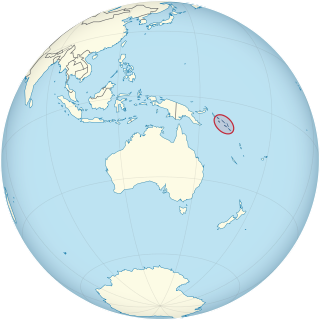
Lesbian, gay, bisexual, and transgender (LGBT) people in Solomon Islands face legal challenges not experienced by non-LGBTQ residents. Male same-sex sexual activity is illegal, punishable by up to 14 years imprisonment, but the law is not enforced.

Lesbian, gay, bisexual and transgender (LGBT) rights have evolved significantly in the past decades in the British Overseas Territory of Gibraltar. Same-sex sexual activity has been legal since 1993 and the age of consent was equalised to 16 in 2012. The Supreme Court of Gibraltar ruled in April 2013 that same-sex couples have the right to adopt. Civil partnerships have been available to both same-sex and opposite-sex couples since March 2014, and in October 2016, Gibraltar voted to legalise same-sex marriage with the Civil Marriage Amendment Act 2016 passing unanimously in Parliament. The law received royal assent on 1 November and took effect on 15 December 2016.

Lesbian, gay, bisexual, and transgender (LGBT) people in the Dominican Republic do not possess the same legal protections as non-LGBTQ residents, and face social challenges that are not experienced by other people. While the Dominican Criminal Code does not expressly prohibit same-sex sexual relations or cross-dressing, it also does not address discrimination or harassment on the account of sexual orientation or gender identity, nor does it recognize same-sex unions in any form, whether it be marriage or partnerships. Households headed by same-sex couples are also not eligible for any of the same rights given to opposite-sex married couples, as same-sex marriage is constitutionally banned in the country.

Lesbian, gay, bisexual, and transgender (LGBT) people in Bermuda, a British Overseas Territory, face legal challenges not experienced by non-LGBT residents. Homosexuality is legal in Bermuda, but the territory has long held a reputation for being homophobic and intolerant. Since 2013, the Human Rights Act has prohibited discrimination on the basis of sexual orientation.

Lesbian, gay, bisexual, and transgender (LGBT) persons in Antigua and Barbuda may face legal challenges not experienced by non-LGBTQ citizens.

LGBTQ+ rights in the Cayman Islands are regarded as some of the most progressive in the Caribbean. While the British territory still has a long way to go, it continues to relax its stance on this subject. Both male and female types of same-sex sexual activity are legal in the Cayman Islands. Same-sex unions became legal in 2020.
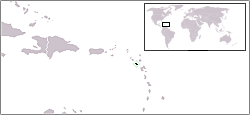
Lesbian, gay, bisexual, and transgender (LGBT) persons in Montserrat face legal challenges not experienced by non-LGBTQ residents. Same-sex sexual activity has been legal in Montserrat since 2001.

Lesbian, gay, bisexual, and transgender (LGBTQ) persons in Belize face legal challenges not experienced by non-LGBT citizens, although attitudes have been changing in recent years. Same-sex sexual activity was decriminalized in Belize in 2016, when the Supreme Court declared Belize's anti-sodomy law unconstitutional. Belize's constitution prohibits discrimination on the basis of sex, which Belizean courts have interpreted to include sexual orientation.
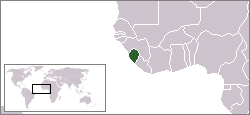
Lesbian, gay, bisexual, and transgender (LGBT) people in Sierra Leone face legal challenges not experienced by non-LGBTQ residents. Male same-sex sexual activity is illegal in Sierra Leone and carries a possible penalty of life imprisonment, although this law is seldom enforced.

Lesbian, gay, bisexual, and transgender (LGBT) people in the Marshall Islands may face legal challenges not experienced by non-LGBTQ residents. Same-sex sexual activity has been legal in the Marshall Islands since 2005, and discrimination on the basis of sexual orientation and gender identity has been outlawed in all areas since 2019. Despite this, households headed by same-sex couples are not eligible for the same legal protections available to opposite-sex married couples, as same-sex marriage and civil unions are not recognized.

Lesbian, gay, bisexual, and transgender (LGBT) people in Grenada may face legal challenges not experienced by non-LGBT residents. The penal code makes same-sex acts on Grenada proper illegal with a punishment up to 10 years in prison, it also does not address discrimination or harassment on the account of sexual orientation or gender identity, nor does it recognize same sex unions in any form, whether it be marriage or partnerships. Household headed by same-sex couples are also not eligible for any of the same rights given to opposite-sex married couples.

Lesbian, gay, bisexual, and transgender (LGBT) people in Palau do not possess the same legal protections as non-LGBT residents, and may face social challenges that are not experienced by others. Same-sex sexual activity has been legal in Palau since 23 July 2014, when the current Penal Code took effect, but households headed by same-sex couples are not eligible for the same legal protections available to opposite-sex married couples. Same-sex marriage is constitutionally banned, and there are no anti-discrimination laws concerning sexual orientation and gender identity.

Lesbian, gay, bisexual, and transgender (LGBT) people in the British Overseas Territory of the Pitcairn Islands enjoy most of the same rights as non-LGBT people. Same-sex sexual activity is legal, discrimination based on sexual orientation is constitutionally outlawed and same-sex marriage has been legal since 14 May 2015.

Lesbian, gay, bisexual, and transgender (LGBT) persons in Anguilla face legal challenges not experienced by non-LGBTQ residents. Same-sex sexual activity is legal in Anguilla, but same-sex couples cannot marry or obtain civil partnerships. Anguillian law does not forbid discrimination based on sexual orientation or gender identity.

Lesbian, gay, bisexual, and transgender (LGBT) rights in Bonaire are very progressive by Caribbean standards. Bonaire forms part of the Caribbean Netherlands and is a special municipality of the Netherlands. Both male and female same-sex sexual activity are legal in Bonaire, with same-sex marriage and adoption being legal since 2012. In addition, discrimination on the basis of "heterosexual and homosexual orientation" is outlawed.
